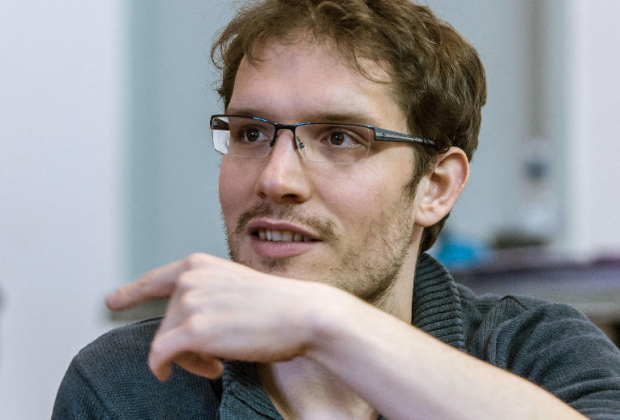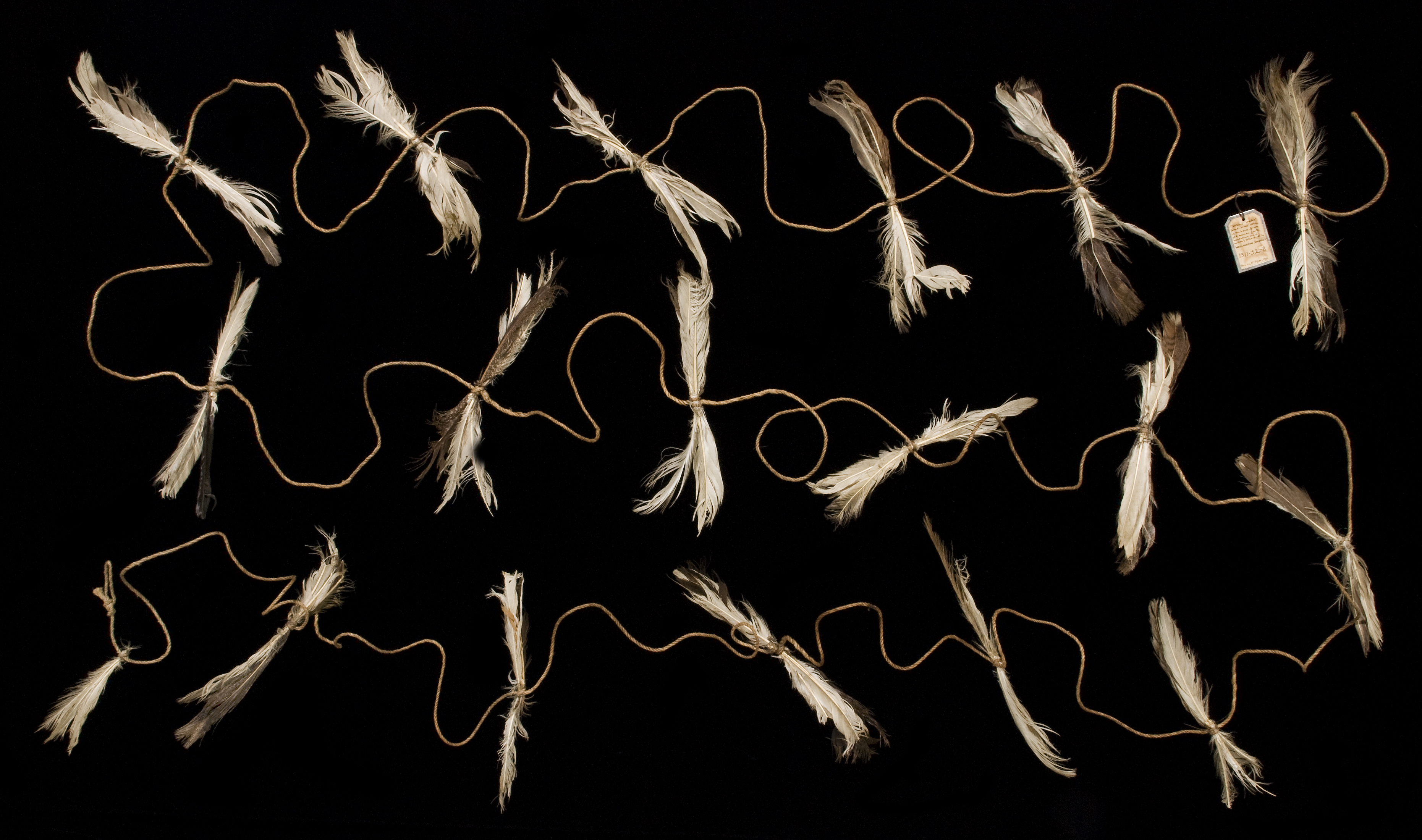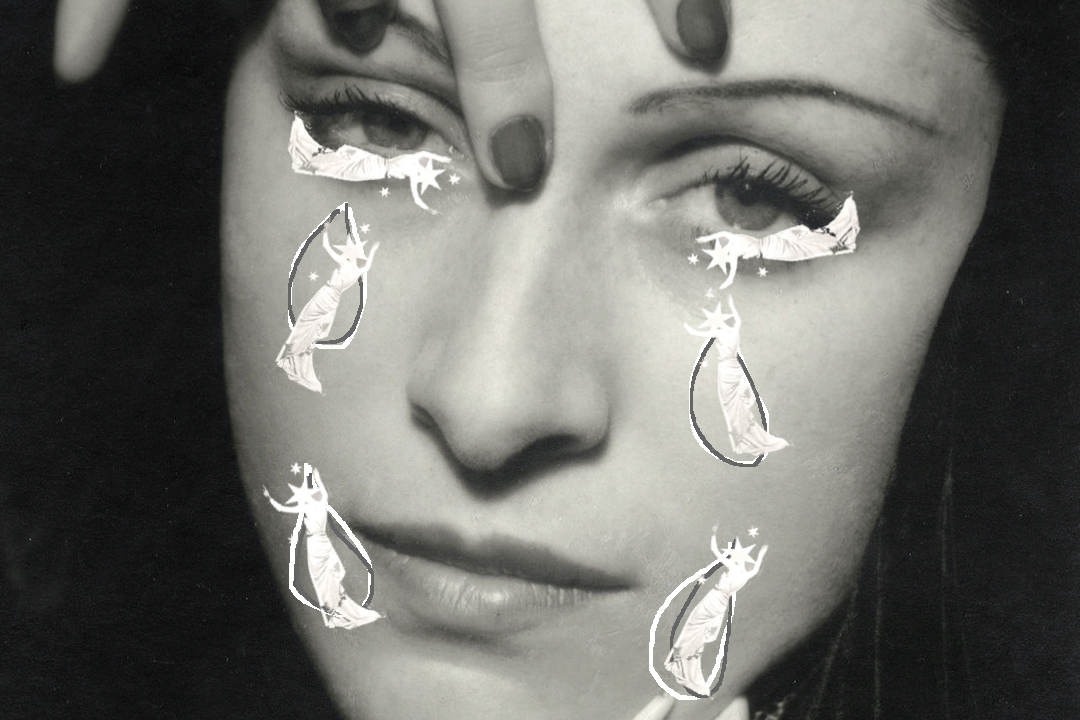
Madness, violence and so on
Three hours long and punctuated by several murders, Robert Icke’s adaptation of Aeschylus’ Oresteia trilogy struck audiences this summer with its enormous ambition. Perhaps this sheer scale was inevitable. “Anyone interested in theatre—or in stories—eventually finds their way back to the Greeks”, he tells me. “They’re the wellspring of theatre as we know it.”
The bare bones of the story are monumental enough: after Agamemnon sacrifices his daughter to the gods so he can sail off to war, his wife Clytemnestra murders him. She in turn is killed by their son Orestes, and he is finally acquitted in a democratic court of law. But Icke’s Oresteia, which transferred from London’s Almeida Theatre to the West End in a blaze of five-star reviews, can’t really be reduced to this cycle of bloodshed, any more than Aeschylus’s original can. “It’s about things that haven’t gone away. Justice. The impossibility of making moral decisions. Family—and its comforts and failings. The strangeness of being both your own person and your parents’ child. Madness. Violence. And so on.”
The obvious tension is between the immediate resonance of the trilogy and its real alien strangeness. How do you make modern audiences care about a play first performed nearly 2500 years ago? “There are a lot of tricky formal decisions: the Chorus, the Gods, what to do with ancient theatrical conventions [that] seem alienatingly archaic to a modern audience”. Icke was helped along the way by Cambridge Classics professor Simon Goldhill. He says he was “a brilliant person to have on board” because “he’s genuinely interested in these plays as plays, as stories that might be told in real time with the express purpose of captivating a present-day audience who might not have any prior knowledge.”
“Simon very generously answered questions throughout the process—while I was writing the initial draft especially—and made himself available when my (unimpressively small) Greek failed me for detailed translations of Aeschylus’ grammar. Once it was written, he sent me lucid, brilliant thoughts on the script, came into rehearsal for an afternoon and spoke with the actors, taught the actor playing Cassandra how to speak Aeschylus in Ancient Greek”.
One of the most radical departures was Icke’s decision to reject the traditional Greek chorus. Does he think modern audiences have different expectations about what individual characters can say and do that render the chorus superfluous? Icke isn’t satisfied with this dichotomy. “Dramatically we don’t understand the device of a formal chorus in the way the Greeks did—not even, today, in new musical theatre (where a ‘chorus’ as such was much more common). There are narrators and sole-character choruses that we do easily understand in modern theatre (Alfieri in Miller’s A View From The Bridge is one such). Each chorus is different, and fulfils varying functions, in each extant Greek tragedy—so it isn’t a blanket decision, but one that has to be made differently (or at least weighted differently) depending on the play you’re doing.”
All this in mind, he protests when I ask why he decided to drop the chorus. “Well, I didn’t drop them! They’re there. There just aren’t actors called ‘chorus’ in the way there would have been in 458 BCE … I decided to ‘outsource’ each of those choric functions in a way that wouldn’t confuse a modern audience unfamiliar with Greek theatrical conventions.” It’s this process that lends the drama a distinctively modern flavour. An anguished Orestes watches the action as it unfolds, and we gradually realise what we’re watching are his imperfect memories. The story of Agamemnon’s sacrifice of his daughter Iphigenia, told in the opening stages of Aeschylus’s trilogy by the chorus, is played out in all its horror before our eyes.
Icke’s interest in finding equivalences isn’t just about updating ancient forms for modern audiences, though: one of the deepest concerns of Aeschylus’ trilogy is the question of how words and actions can ever be equal to each other. Icke has spoken in the past about his preoccupation with the idea that language is an imperfect way of communicating, and when I ask about this he tells me that it is “one of the things I think about most regularly in thinking about theatre more generally. It’s in the production and the adaptation so explicitly because it’s a key theme of the Aeschylus: the unreliability and slipperiness of signs (and therefore of words)”. Agamemnon is branded a child-killer for killing his daughter, Orestes a child killer for his mother’s murder. In Icke’s version, we begin by seeing Clytemnestra’s murder of her husband solely as revenge for his sacrifice of their daughter, and only later realise that she has a lover too. It’s this process of finding equivalences that in the end forms the heart of the play: what equivalence, what justice can there be when someone murders a member of their own family?
When words fail, drama takes over. Icke has compared his Oresteia to The Sopranos, and posters across London advertised it as ‘part The Godfather, part Breaking Bad’. And watching the play it becomes apparent that this isn’t just about making Greek tragedy seem less elitist. Sheer theatricality drives the action forward: the following wind that Agamemnon hopes to summon up by sacrificing his daughter becomes a terrifying roar that sweeps us towards the cycle of revenge. All this monumental force matches the ambition of the project. In fact, Icke says that “the single hardest thing about doing tragedy” isn’t finding equivalences to Greek form at all, but “the sheer size of the imaginative world—and therefore the unrelenting emotional commitment it demands from the actors.” Shards from the shattered House of Atreus become reflections on justice, gender, family, certainty itself. “One thing we’ve noticed is that people seem to see themselves reflected in the play: a friend who’d recently split up from her boyfriend thought it was all about dissolving relationships, another friend who’s a specialist in dealing with violence saw the play entirely in those terms.”
It’s this ability to tackle the full scope of the drama head-on that has made Icke so successful. As Oresteia draws to a close, he’s already thinking about his next project, a new production of Uncle Vanya at the Almeida. I ask him what we can expect. “It’ll be—like Oresteia—very faithful to the intentions of Chekhov’s play, though it’ll hew much closer to the original line by line text than Oresteia did. It’ll hopefully be very funny and very upsetting”. “If”, he adds, “we can get it right.”
Uncle Vanya opens at the Almeida Theatre, London, on the fifth of February.







